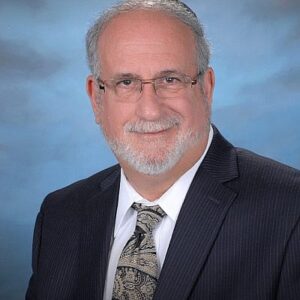By Rabbi Simcha Weiser

(JNS) The Jewish future relies on the relevance that children find in what we Jewish teachers teach. Soon to be entering the new school year, we need thoughtful clarity for our teaching to remain relevant.
As our Jewish educators prepare to “diligently teach our children,” we remind ourselves how privileged we are to connect today’s youth to the sources of our own happiness and security.
Our personal well-being and gratitude to the teachers who inspired, disciplined and guided us at the many intersections of life remain cherished. We need not re-evaluate based on emerging moral perspectives. Our connection to them and their wisdom need not pass today’s political muster. We can joyfully value it all and cherish our gratefulness to them.
To begin the new school year on sound footing, let’s revisit some fundamentals.
The Ten Commandments, which embrace the entire structure of mitzvot and Jewish living, notably begin with the requirement of gratefulness. As the classical commentaries point out, had God wanted to be magnified in greatness, the reference point would have been the creation of heaven and earth. Instead, G-d directs us to feel gratitude for rescuing us from Egyptian bondage. (What have I done for you lately?) This is how secure relationships form—through kindness done and kindness recognized.
What concludes these Ten Commandments? Do not live a life of resentment or grievance. “All are created in my image”: Each person is formed singularly, uniquely, with particular strengths and weaknesses, advantages and deficits, and all worthy of love. Each soul is placed into circumstances most suited for moral growth and spiritual impact. Framing reality this way gives us the capacity to make the most of our time and reconcile our pain. In mastering this, we then focus our energies as builders, as fixers—as Metaknai Olam (“repairers of our world”).
To rescue this perspective from the scrap heap of moral thinking is a privilege because it offers every one of our students the opportunity to construct for themselves lives of meaning and purpose.
Progressive thoughts once considered radical during our formative years are reviled today, blamed for causing the increasing alienation and unhappiness that is so well-documented. Great people, however, find the courage to tune out the noise and the angry voices. Great teachers create truly safe spaces for our students to cultivate patient, kindly friendships; hone their ability to listen closely even when differing; and find the sincerity to argue strongly while remaining connected. The outcome will be young adults possessing the temerity and constraint to build happy families amidst the prevalent moral panic. They will go on to build community and promote happiness for themselves and those around them. Some of them will succeed us as Jewish teachers.
These are the lessons of Abraham: a good eye that does not begrudge the successes of others, gratefulness for life’s blessings, and humility drawn from wisdom amassed and passed forward.
Never has being a Jewish educator felt more honorable, important or so great a privilege.
Let’s get ourselves ready for this challenge so that when our children return to class, we—their teachers—will be there to diligently teach them.
*
Rabbi Simcha Weiser is head of school at Soille San Diego Hebrew Day School, celebrating its 60th anniversary year. Preceding provided by JNS.org